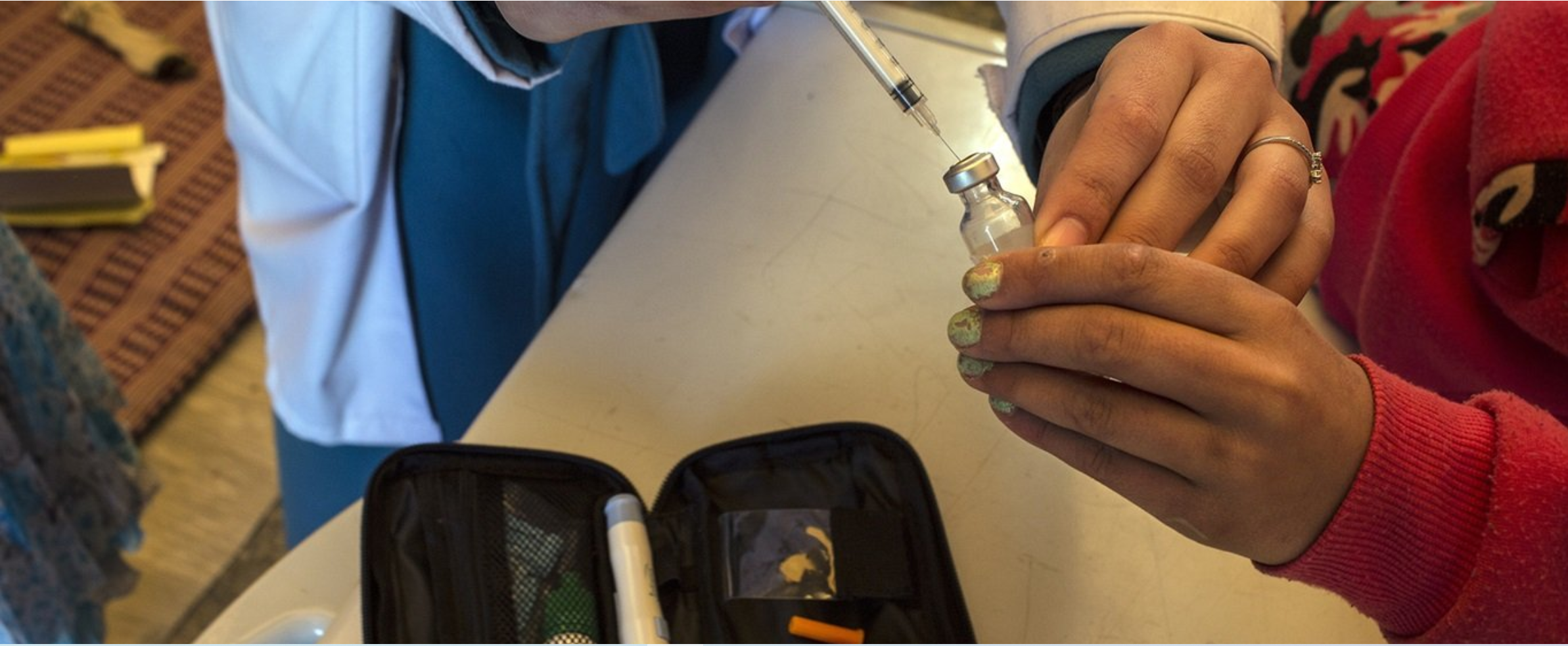New WHO Global Compact to speed up action to tackle diabetes
 The Compact is being launched today at the Global Diabetes Summit, which is co-hosted by WHO and the Government of Canada, with the support of the University of Toronto. During the event, the President of Kenya will join the Prime Ministers of Fiji, Norway and Singapore; the WHO Global Ambassador for Noncommunicable Diseases and Injuries, Michael R. Bloomberg; and ministers of health from a number of countries as well as diabetes experts and people living with diabetes, to highlight the ways in which they will support this new collaborative effort. Other UN agencies, civil society partners and representatives of the private sector will also attend.
The Compact is being launched today at the Global Diabetes Summit, which is co-hosted by WHO and the Government of Canada, with the support of the University of Toronto. During the event, the President of Kenya will join the Prime Ministers of Fiji, Norway and Singapore; the WHO Global Ambassador for Noncommunicable Diseases and Injuries, Michael R. Bloomberg; and ministers of health from a number of countries as well as diabetes experts and people living with diabetes, to highlight the ways in which they will support this new collaborative effort. Other UN agencies, civil society partners and representatives of the private sector will also attend.
The risk of early death from diabetes is increasing
“The need to take urgent action on diabetes is clearer than ever,” said Dr Tedros Adhanom Ghebreyesus, Director-General of the World Health Organization. “The number of people with diabetes has quadrupled in the last 40 years. It is the only major noncommunicable disease for which the risk of dying early is going up, rather than down. And a high proportion of people who are severely ill in hospital with COVID-19 have diabetes. The Global Diabetes Compact will help to catalyze political commitment for action to increase the accessibility and affordability of life-saving medicines for diabetes and also for its prevention and diagnosis.”
“Canada has a proud history of diabetes research and innovation. From the discovery of insulin in 1921 to one hundred years later, we continue working to support people living with diabetes,” said the Honourable Patty Hajdu, Minister of Health, Canada. “But we cannot take on diabetes alone. We must each share knowledge and foster international collaboration to help people with diabetes live longer, healthier lives — in Canada and around the world.”
Urgent action needed on increasing access to affordable insulin
One of the most urgent areas of work is to increase access to diabetes diagnostic tools and medicines, particularly insulin, in low- and middle-income countries.
The introduction of a pilot programme for WHO prequalification of insulin in 2019 has been an important step. Currently the insulin market is dominated by three companies. Prequalification of insulin produced by more manufacturers could help increase the availability of quality-assured insulin to countries that are currently not meeting demand. In addition, discussions are already underway with manufacturers of insulin and other diabetes medicines and diagnostic tools about avenues that could help meet demand at prices that countries can afford.
Insulin is not the only scarce commodity: many people struggle to obtain and afford blood glucose metres and test strips as well.
In addition, about half of all adults with type 2 diabetes remain undiagnosed and 50% of people with type 2 diabetes don’t get the insulin they need, placing them at avoidable risk of debilitating and irreversible complications such as early death, limb amputations and sight loss.
Innovation will be one of the core components of the Compact, with a focus on developing and evaluating low-cost technologies and digital solutions for diabetes care.
All above are from WHO offcial website-----Hangzhou Muhua Bio-Tech Co., Ltd( MultiHealth) is a company specialzied in providing ingredients as botanical extracts in nutraceutical, personal care and food industry.




